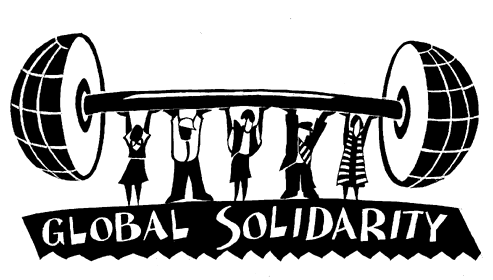 |
| Source: lawatthemargins.com |
In Michael Peter Smith's "Transnational Migration and the Globalization of Grassroots Politics", he examines how transnationalism has led to what he calls "deterritorialization", or the process in which transnational migrants and refugees are severed from their homeland's culture, politics, and society. This, in turn, causes "reterritorialization", where transnational migrants negotiate with this displacement by establishing ethnic enclaves abroad and in their adopted country. Furthermore, Smith also explores how these transnational negotiations can mobilize grassroots organizing and activism. He writes that diasporic people can advocate for their "local" issues and garner support from people abroad and globally without sacrificing their agency. He drives the point by providing an example of transmigrant Guatemalan refugees self-organizing and advocating for their return to the homeland without being spoken for by international and refugee reliefs organizations. Ultimately, Smith suggests for people to harness this newfound opportunity to "... think and act simultaneously at multiple scales..." (p. 31) across national borders in order to deconstruct the flawed belief in global-local duality.
Question: How successful have transnational grassroots organizations been? What kind of challenges/opposition do they face? In what ways has transnational grassroots organizing manifested in our own local communities?
No comments:
Post a Comment